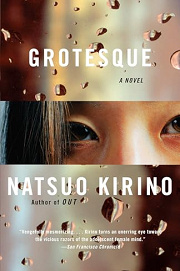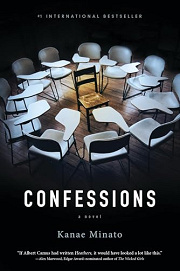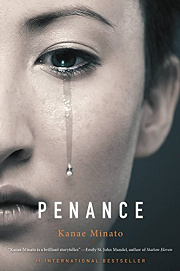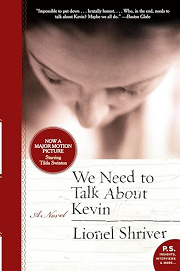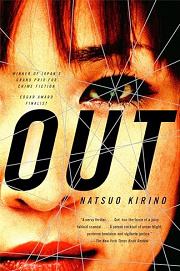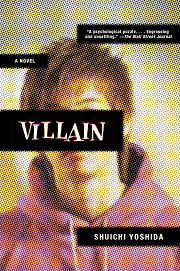Share your thoughts in a quick Shelf Talk!
Grotesque by Natsuo Kirino
From an elite Tokyo school to the city’s shadowed edges, two sisters’ lives twist through ambition, cruelty, and the hunger to be seen. Icy and incisive, Grotesque peers into identity and power with a gaze so steady it leaves scorch marks.
Have you read this book? Share what you liked (or didn’t), and we’ll use your answers to recommend your next favorite read!
Love Grotesque but not sure what to read next?
These picks are popular with readers who enjoyed this book. Complete a quick Shelf Talk to get recommendations made just for you! Warning: possible spoilers for Grotesque below.
In Grotesque, did you enjoy ...
... venomous, first-person accounts that keep shifting the truth around a murder?
Confessions by Kanae Minato
If you were drawn to how the unnamed narrator of Grotesque twists Yuriko’s and Kazue Sato’s stories to suit her grudges, you’ll love the way Confessions weaponizes perspective. Each chapter is a chilling monologue that recasts a schoolgirl’s death, much like how the accounts in Grotesque—from the narrator to Yuriko’s diary—constantly corrode what you think you know about the murders and Zhang’s role. The result is the same queasy thrill of never trusting anyone’s version of the truth.
... interlocking female perspectives unpacking the fallout of a single brutal crime?
Penance by Kanae Minato
If the shifting testimonies in Grotesque—from the narrator’s resentful voice to Yuriko’s and Kazue’s writings—pulled you in, Penance offers a similarly prismatic look at guilt and blame. Years after a classmate is murdered, four women narrate how a teacher’s accusation infects their lives, echoing the way the Q High School cohort in Grotesque never escapes the hierarchy, beauty politics, and shame that shadow Yuriko’s and Kazue’s deaths.
... diary-like confessions that slowly lay bare a disturbing psyche?
We Need to Talk About Kevin by Lionel Shriver
If you appreciated the diary entries in Grotesque—Yuriko’s coolly self-aware voice and Kazue Sato’s painfully formal self-justifications—Shriver’s novel delivers that same claustrophobic intimacy. Through letters from Eva to her husband, the book peels back a mother’s rationalizations after her son’s massacre, mirroring how Grotesque filters horror through carefully curated documents that make you complicit in parsing what’s honest and what’s performance.
... an unflinching Tokyo noir of women navigating violence, exploitation, and survival?
Out by Natsuo Kirino
If the bleak honesty of Grotesque—from the sex-trade underbelly surrounding Yuriko to the grim realities facing Zhang as an immigrant laborer—kept you riveted, Out doubles down on that night-black tone. Following women on a factory night shift who become entangled in murder and disposal, it shares Grotesque’s unsentimental gaze at gender, class, and the transactional bodies of Tokyo, with the same ruthless clarity about what people do to endure.
... forensic psychological excavation of a murder that refuses easy villains?
Villain by Shuichi Yoshida
If what stayed with you in Grotesque was its chilling interiority—the narrator’s envy of Yuriko’s beauty, Kazue Sato’s fierce self-reinvention, and the murky motives around the killings—Villain offers a similarly penetrating autopsy of desire and shame. After a young woman is murdered, the novel threads through the perspectives of the accused and the bereaved, much like Grotesque’s layered voices, to ask who the real monster is and why.
Unlock your personalized book recommendations! Just take a quick Shelf Talk for Grotesque by Natsuo Kirino. It’s only a few questions and takes less than a minute.
